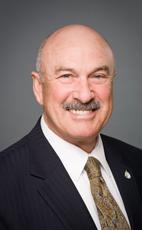Mr. Speaker, it is with great pride and pleasure that I rise today to pay tribute to special young men and women who are part of the many cadet organizations throughout my riding.
For many years, Canada's young people have been involved in sea, air and army cadets. The cadet program challenges our youth to be the best they can be through team work and discipline, and yes, some fun too.
Recently one young man from my riding set himself apart from his peers by receiving a special award. Cadet Warrant Officer First Class James Powell of the 598 Sabre Air Cadet Squadron received his wings as he completed his private pilot's licence. He also was a recipient of the Doug Whitley Award for top cadet.
Recently many cadets took part in thousands of Remembrance Day services across this great country.
I extend congratulations to all the young men and women who dedicate their personal time to getting involved with cadets, to those volunteers who guide them and to the communities that provide so much support.

